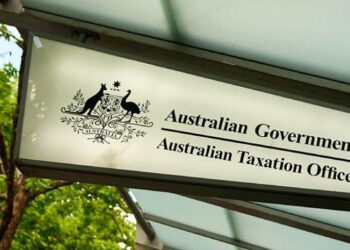In a recent webinar, Jason Hurst, superannuation technical adviser for the Knowledge Shop, said there has been this belief since the announcement of the Treasury Laws Amendment (Enhancing Superannuation Outcomes for Australians and Helping Business Invest) Bill 2021 that the work test has been done away with completely.
“The work test has been removed from the SIS Act but has been moved to the ITAA under ITAA 97 s290-165(1)(1A).”
Under the ITAA the work test condition for ages 67 to 75 states:
(1A) If you made the contribution during the period starting on the day you turn 67 and ending on the day that is 28 days after the end of the month in which you turn 75:
(a) You must have been * gainfully employed for at least 40 hours in any period of 30 consecutive days during the income year in which the contribution was made; or
(b) If you do not satisfy paragraph (a) you must satisfy the following requirements:
(i) You were gainfully employed for at least 40 hours in any period of 30 consecutive days during the income year (the previous income year) ending before the income year in which the contribution was made
(ii) You had * a total superannuation balance of less than $300,000 at the end of the previous income year
(iii) You have not deducted a contribution in the previous income year or any earlier income years on the basis of satisfying the requirements in this paragraph
(iv) No contribution made by you, or in respect of you, in the previous income year or any earlier income years, was accepted by a * superannuation fund or an * RSA under a prescribed provision of regulations made for the purposes of the Superannuation Industry (Supervision) Act 1993 or the Retirement Savings Accounts Act 1997.
Maximum age condition
(2) You cannot deduct the contribution if it is made after the day that is 28 days after the end of the month in which you turn 75.
“This means that those aged between 67 and 74 will still need to meet the work test if they wish to contribute personal concessional contributions and claim a deduction for those,” Mr Hurst said.
The current work test applies once you turn 67 until the age of 75 and means you must have worked at least 40 hours within 30 consecutive days in a financial year before your super fund can accept any voluntary contributions.
“A one-year exemption from the work test was announced as part of the 2018–19 federal budget that meant that from 1 July 2019, Australians aged 65 to 74 with a total superannuation balance below $300,000 were able to make voluntary contributions for 12 months from the end of the financial year in which they last met the work test,” Mr Hurst said.
“This was known as the work test exemption.”
He said determining gainful employment is crucial in determining if someone has ceased work for retirement purposes but is also used to determine if someone has met the work test.
The ATO defines gainful employment as being employed or self-employed for gain and reward in any business, trade, profession, vocation, calling, occupation or employment which means an individual must be working and getting paid for it.
Voluntary working arrangements will not be deemed to meet the work test and the work test also rarely includes earning a passive income or ad hoc income of a domestic nature, such as being paid to house-sit for a friend.
Mr Hurst said the legislative changes mean that from 1 July 2022, individuals between 67–74 will be able to contribute personal non-concessional contributions without the need to meet a work test first.
“The Bill (Treasury Laws Amendment (Enhancing Superannuation Outcomes for Australians and Helping Business Invest) Bill 2021) received Royal Assent on the 22 February, giving advisers the ability to now advise on personal non-concessional contributions for those clients over 67 that will not meet a work test,” he said.
“This rule has also included the ability for the bring forward provision to be used for these clients as well.
“As long as the TSB is under $1.48m at the 30 June prior, those members aged less than 75 can utilise the full $330,000 non-concessional bring forward provision, even if this means finishing off the bring forward after they have reached 75.”


